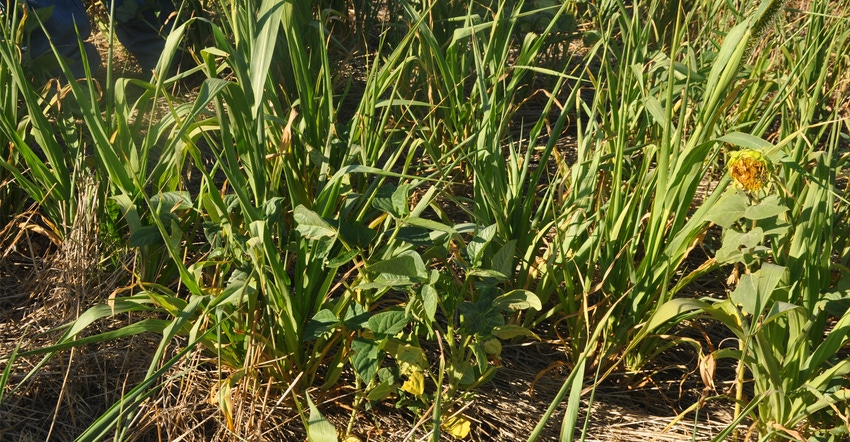
Getting paid to sequester carbon with farming practices is now a reality. This year’s price for sequestration, established by the Nori carbon marketplace, is $15 per ton.
If you already practice no-till, use cover crops and integrate livestock, you could already be sequestering carbon at a rate between a half-ton and a ton and half per acre, per year — and if you act fast, you can collect payment retroactively for that.
Growers who sign up for the CarbonNOW program from Locus Agricultural Solutions by March 15 can get full program benefits, including financial compensation through Nori’s marketplace for the last five years in the form of carbon credits and $15 cash per ton. What that means is that a grower sequestering an average of 1 ton of carbon per acre over the past five years would be paid for 5 tons of carbon credits per acre immediately.
Locus Ag works with Nori, a carbon marketplace that uses COMET-Farm, a USDA tool, to validate carbon sequestration and pay growers. Nori, in turn, works with dozens of companies that have expressed a determination to reduce their carbon footprint and are seeking ways to offset the emissions they generate, Zorner says.
Locus Ag’s product, Rhizolizer, is a microbial soil amendment, comprised of a blend of Trichoderma and Bacillus, that work with existing soil microbes to influence the crop root microbiome and stimulate the crop to pull more carbon dioxide from the air and store it in the soil. The result of the added microbes and added carbon is an increase in root mass and nodulation as well as better nutrient and water utilization that makes for healthier plants and higher yields.
“If you add the products from Locus Ag, you can increase that sequestration to as much as 5 tons per acre of carbon from the air while also reducing chemical fertilizer use and increasing yields for cash crops such as corn and soybeans,” according to Paul Zorner, chief agronomist for Locus Ag. “This is a win-win-win for farmers.”
To be eligible for the CarbonNOW program, farmers must have been using one of several regenerative practices in the past 10 years. Those practices include reduced tillage, no post-harvest root removal, plant diversity, cover crops and animal integration.
“Agriculture has the advantage of being an industry that sequesters carbon in the normal course of doing business,” Zorner says. “Far from being the villain in climate change, farmers are actually frontline heroes of the fight against it. CarbonNOW provides growers a way to get paid for what they put beneath the ground while they still get paid for what the harvest above the ground.”
Farmers who want in for 2020 must move quickly: The deadline to get full program benefits is March 15. But growers who miss that deadline can still join the program this year and gain carbon credits at a guaranteed floor price of $15 per ton. Locus Ag hopes to create a list of interested farmers and work with them both this year and in the future to continue to receive carbon credits.
Future payments could be more or less than today’s $15 per ton price, Zorner says, since payment is based on market conditions.
The benefit agriculture can provide in fighting climate change is enormous. For example, in meeting the U.N. goal of reducing carbon in the air by 7.6%, 818 million tons of carbon (4.7%) could be reduced by simply using Rhizolizer on just a quarter of the 400 million acres of arable cropland in the U.S., Zorner says.
“When you consider that the CarbonNOW program, with the addition of Rhizolizer, can increase sequestration to 5 tons per acre, you can see the potential to actually put us on the road to making a huge difference in atmospheric carbon while at the same time giving farmers a financial benefit for the role they play in the fight against climate change,” Zorner says.
However, the benefits of the Locus Ag program go beyond the payment of carbon credits. Zorner says that adding Rhizolizer to the soil has been shown to increase corn yields by between 9 and 23 bushels per acre while allowing growers to reduce fertilizer use by up to 10%.
All these agronomic and carbon benefits are offered by Locus Ag at a 25% discount to CarbonNOW participants, a cost of about $15 per acre.
Growers interested in joining the program can find more information on the Locus Ag website.
About the Author(s)
You May Also Like






